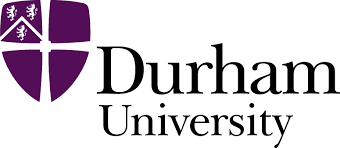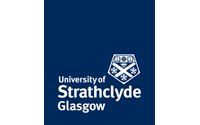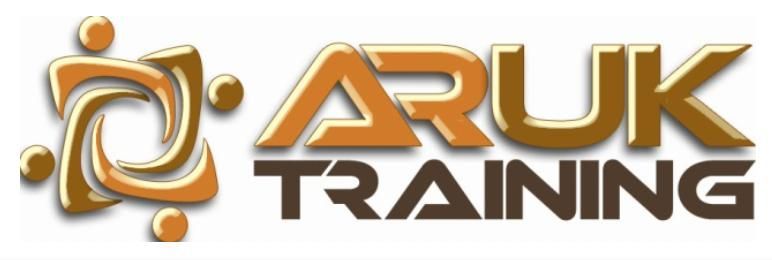
Managing Performance in Hybrid Teams
Course ID: 2510130101275ESH
Course Dates : 13/10/25 Course Duration : 5 Studying Day/s Course Location: London, UK
Language: Bilingual
Course Category: Professional and CPD Training Programs
Course Subcategories: Leadership and Management Excellence
Course Certified By: ESHub CPD & LondonUni - Executive Management Training
* Professional Training and CPD Programs
Leading to:
Executive Diploma Certificate
Leading to:
Executive Mini Masters Certificate
Leading to
Executive Masters Certificate
Certification Will Be Issued From :
From London, United Kingdom
Course Fees: £5,120.30
Vat Not Included in the price. VAT may vary depending on the country where the course or workshop is held.
Click to Pay
Date has passed please contact us Sales@e-s-hub.com
Course Information
Introduction
The evolution of work environments has brought about a paradigm shift, with hybrid teams becoming a cornerstone of modern organizational structures. These teams combine remote and in-office employees, presenting unique opportunities and challenges for managers and leaders. As organizations navigate this transformation, the ability to manage performance effectively in hybrid settings has emerged as a critical competency. This course is designed to equip professionals with the tools, frameworks, and strategies necessary to lead hybrid teams with confidence and precision.
Hybrid work models are not merely a response to global disruptions but a strategic choice embraced by forward-thinking organizations. However, managing performance in such environments requires addressing several key gaps. For instance, traditional performance management systems often fail to account for the nuances of asynchronous communication, varying levels of employee engagement, and the potential for misalignment across dispersed teams. By integrating insights from theories such as Self-Determination Theory (SDT) and Adaptive Leadership, this course bridges these gaps, offering participants a comprehensive understanding of how to foster motivation, accountability, and collaboration in hybrid contexts.
Consider the case of a multinational corporation that transitioned to a hybrid model post-pandemic. While productivity metrics initially improved, the organization soon faced challenges in maintaining team cohesion and ensuring equitable recognition of contributions. Employees working remotely reported feelings of isolation, while in-office staff perceived favoritism in performance evaluations. Such scenarios underscore the need for tailored strategies that address both systemic and interpersonal issues. Through real-world examples like this, participants will gain actionable insights into mitigating common pitfalls and optimizing team dynamics.
Mastering the art of managing performance in hybrid teams offers significant benefits for individuals and organizations alike. For professionals, it enhances leadership capabilities, boosts career prospects, and fosters a reputation as a forward-thinking manager. Organizations, on the other hand, stand to gain through improved employee retention, enhanced productivity, and a competitive edge in attracting top talent. The course draws on industry trends, such as the rise of digital collaboration tools and data-driven decision-making, to ensure relevance and applicability.
Frameworks such as the Agile Performance Management Model and the Remote Work Competency Framework provide the theoretical foundation for this course. Participants will explore how these models can be adapted to hybrid settings, enabling them to design performance management systems that are flexible yet robust. Additionally, the course emphasizes the role of technology in facilitating transparency, fairness, and continuous feedback—a critical aspect given the increasing reliance on platforms like Slack, Microsoft Teams, and Asana.
Ultimately, the goal of this course is to empower participants to create high-performing hybrid teams that thrive in an ever-changing landscape. By blending theory with practice, participants will emerge equipped to tackle the complexities of hybrid work head-on, ensuring their teams remain engaged, motivated, and aligned with organizational objectives. Whether you are a seasoned leader or a rising professional, this course offers invaluable insights and practical tools to elevate your leadership capabilities.
Objectives
By attending this course, participants will be able to:
Analyze the unique challenges and opportunities associated with managing performance in hybrid teams.
Evaluate the effectiveness of existing performance management systems in hybrid contexts.
Design tailored strategies to enhance communication, collaboration, and accountability within hybrid teams.
Implement data-driven approaches to monitor and improve team performance consistently.
Apply principles of equity and inclusion to ensure fair treatment of all team members, regardless of location.
Develop skills to leverage technology for seamless performance tracking and feedback delivery.
Synthesize best practices from established frameworks to create a sustainable hybrid performance management model.
Who Should Attend?
This course is ideal for:
HR managers seeking to update their performance management policies for hybrid work environments.
Team leaders and supervisors responsible for overseeing dispersed teams.
Organizational development consultants tasked with designing hybrid work strategies.
Learning and development professionals aiming to enhance their training programs.
Executives and senior leaders interested in fostering a culture of high performance in hybrid settings.
These groups will find the course valuable as it addresses the pressing need to adapt traditional management practices to the realities of modern work. Suitable for intermediate learners, the course assumes basic familiarity with performance management concepts but does not require prior expertise in hybrid work models.
Training Method
• Pre-assessment
• Live group instruction
• Use of real-world examples, case studies and exercises
• Interactive participation and discussion
• Power point presentation, LCD and flip chart
• Group activities and tests
• Each participant receives a 7” Tablet containing a copy of the presentation, slides and handouts
• Post-assessment
Program Support
This program is supported by:
* Interactive discussions
* Role-play
* Case studies and highlight the techniques available to the participants.
Daily Agenda
Daily Schedule (Monday to Friday)
- 09:00 AM – 10:30 AM Technical Session 1
- 10:30 AM – 12:00 PM Technical Session 2
- 12:00 PM – 01:00 PM Technical Session 3
- 01:00 PM – 02:00 PM Lunch Break (If Applicable)
- Participants are expected to engage in guided self-study, reading, or personal reflection on the day’s content. This contributes toward the CPD accreditation and deepens conceptual understanding.
- 02:00 PM – 04:00 PM Self-Study & Reflection
Please Note:
- All training sessions are conducted from Monday to Friday, following the standard working week observed in the United Kingdom and European Union. Saturday and Sunday are official weekends and are not counted as part of the course duration.
- Coffee and refreshments are available on a floating basis throughout the morning. Participants may help themselves at their convenience to ensure an uninterrupted learning experience Provided if applicable and subject to course delivery arrangements.
- Lunch Provided if applicable and subject to course delivery arrangements.
Course Outlines
Foundations of Hybrid Team Performance Management
Understanding the hybrid work model and its implications for performance.
Key challenges in managing dispersed teams: Communication, equity, and engagement.
Overview of relevant theories and frameworks (e.g., SDT, Agile Performance Management).
Case study analysis: Lessons from successful hybrid organizations.
Day 2:
Building a Performance-Oriented Culture
Strategies for fostering trust and accountability in hybrid teams.
Techniques for setting clear goals and expectations in remote and in-office settings.
Role of leadership styles in driving performance outcomes.
Interactive workshop: Developing a hybrid team charter.
Day 3:
Leveraging Technology for Performance Management
Evaluating digital tools for performance tracking and feedback.
Best practices for using data analytics to inform decision-making.
Ensuring cybersecurity and compliance in hybrid workflows.
Hands-on session: Configuring performance dashboards.
Day 4:
Equity, Inclusion, and Motivation in Hybrid Teams
Addressing biases in performance evaluations for remote vs. in-office employees.
Techniques for recognizing and rewarding contributions equitably.
Applying motivational theories to boost engagement in hybrid settings.
Group activity: Designing inclusive performance review processes.
Day 5:
Sustaining High Performance in Hybrid Environments
Continuous improvement: Adapting performance management systems over time.
Strategies for conflict resolution and change management in hybrid teams.
Measuring the ROI of hybrid performance initiatives.
Final project: Presenting a customized hybrid performance management plan.



















































